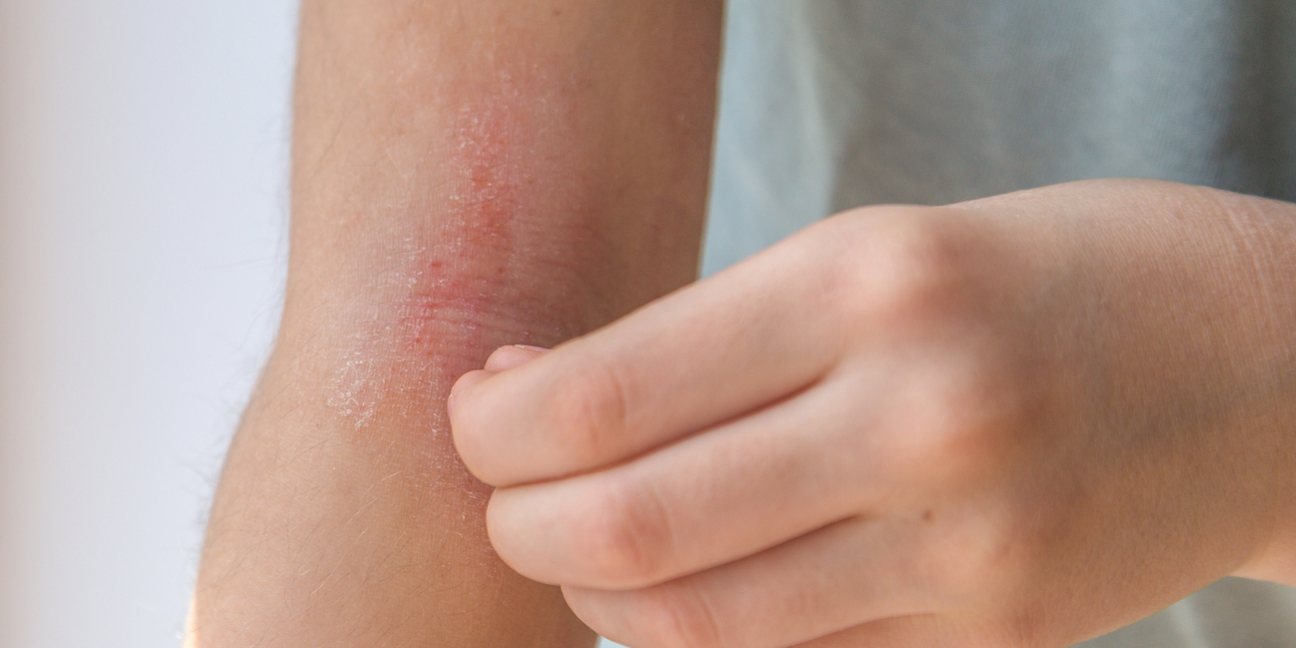Spotlight on Eczema for National Eczema Awareness Month, What is Eczema and How to Treat Eczema
October is National Eczema Awareness Month, a time to raise awareness about this common skin condition that affects millions of people worldwide. Eczema is a chronic inflammatory skin condition that causes itchy, red, and inflamed skin. While there is no cure for eczema, there are effective treatments available to help manage symptoms and improve quality of life.
What is Eczema?
Eczema is a term used to describe a group of skin conditions that cause inflammation, redness, and irritation of the skin. It affects people of all ages, but it is particularly common in children. The severity of eczema can vary, with some individuals experiencing mild irritation and others dealing with severe, persistent symptoms. While eczema isn’t contagious, it can significantly affect the quality of life for those who have it.

Types of Eczema
There are several different types of eczema, each with its own cause and symptoms. The most common types of eczema include:
- Atopic Dermatitis: This is the most common type of eczema, affecting up to 20% of children. It is often caused by a combination of genetics and environmental factors.
- Contact Dermatitis: This type of eczema is caused by direct contact with an irritant or allergen. Symptoms typically develop within 48 hours of exposure.
- Dyshidrotic Eczema: This type of eczema causes small, itchy blisters to form on the palms of the hands and soles of the feet. It is more common in adults than in children.
What Causes Eczema Flare-Ups?
There is no one cause of eczema, but several factors can trigger flare-ups, including:
- Dry skin
- Irritants, such as soaps, detergents, and fragrances
- Allergens, such as dust mites, pollen, and pet dander
- Stress
- Changes in temperature or humidity
Eczema Treatment Options
While there is no cure for eczema, there are effective treatments available to help manage symptoms and improve quality of life. These treatments may include:
- Moisturizers: Regular use of a moisturizer can help keep skin hydrated and reduce itching.
- Steroid creams and ointments: These medications can help reduce inflammation and itching.
- Calcineurin inhibitor creams: These medications can also help reduce inflammation and itching.
- Light therapy: This type of therapy uses ultraviolet light to reduce inflammation.
- Dupixent: This is a biologic medication that is injected to help control moderate to severe eczema.
Contact Alaska Family Dermatology for Eczema Treatment
If you are struggling with eczema, please BOOK AN APPOINTMENT Alaska Family Dermatology today. Our experienced dermatologists can help you develop a treatment plan to manage your symptoms and improve your quality of life.




